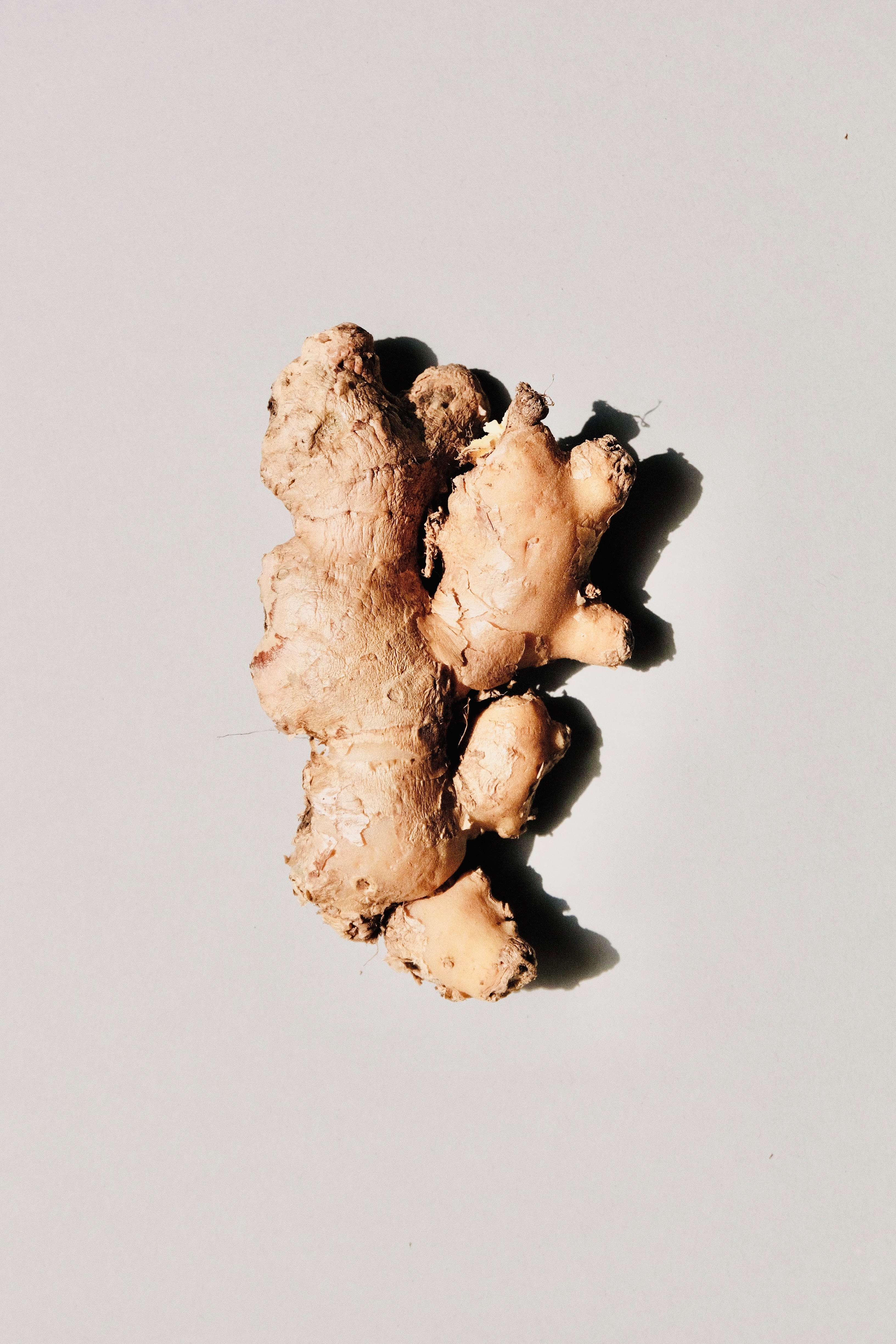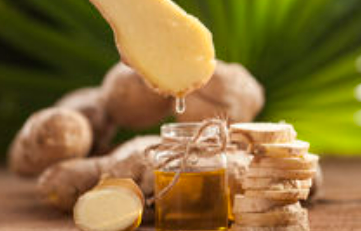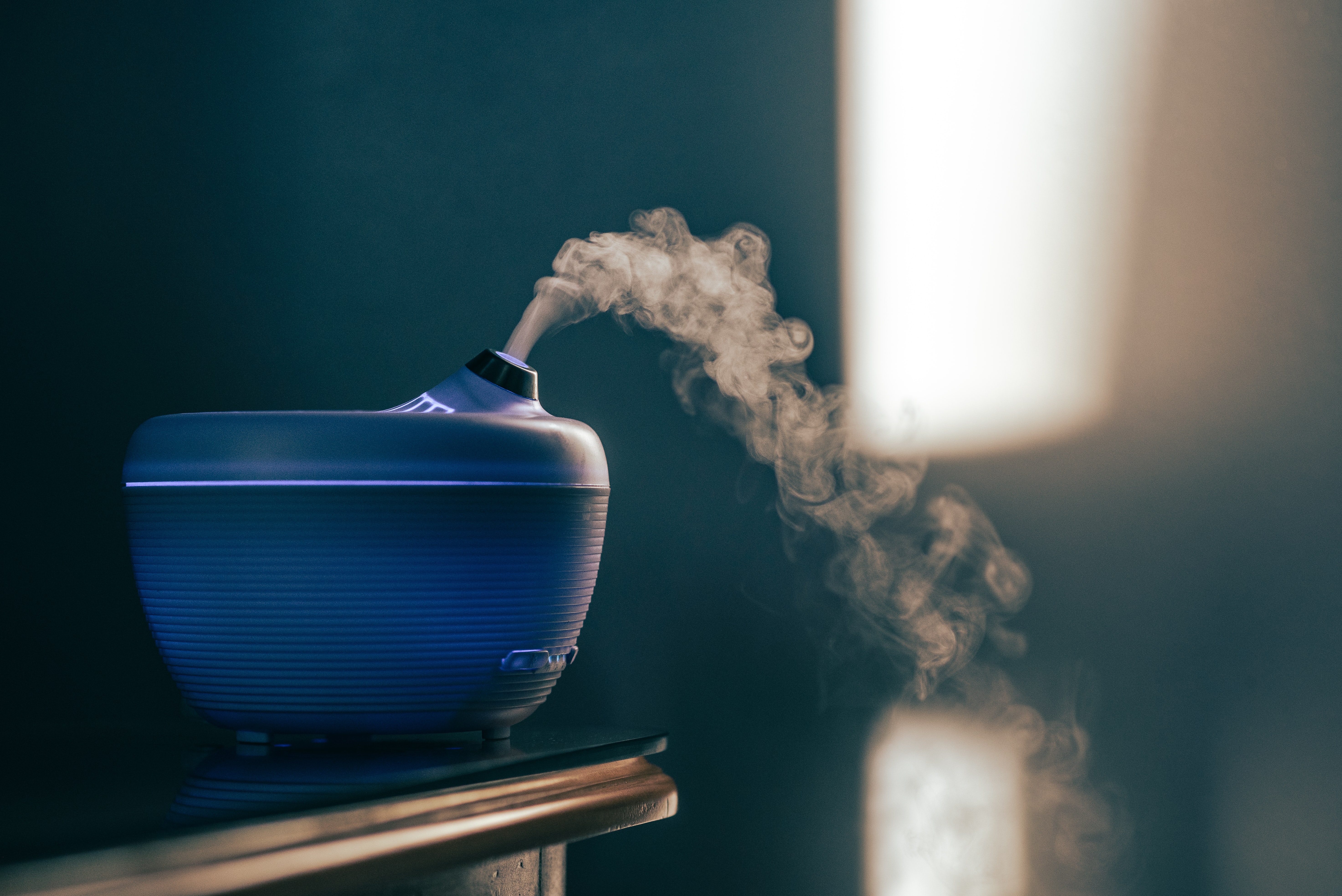- Home
- Essential Oils
- Ginger Essential Oil
Discover Ginger Essential Oil

Ginger essential oil is a popular oil that is derived from the rhizome of the ginger plant which is native to Southeast Asia. It has a warm, spicy aroma that is both uplifting and energizing. Ginger oil is a versatile essential oil that has a range of benefits for both the body and mind.
Extraction Process of Ginger Oil
Ginger essential oil is typically extracted through steam distillation from the rhizome (underground stem) of the ginger plant. The extraction process involves several steps, including:
- Harvesting: Ginger plants are typically harvested when they are mature, which is usually after 8 to 10 months of growth. The rhizomes are then dug up from the soil and cleaned.
- Drying: The cleaned rhizomes are dried to remove excess moisture, which can affect the quality of the essential oil. Drying can be done in the sun or in a dryer.
- Grinding: Once the rhizomes are dry, they are ground into a powder or paste. This helps to break down the plant material and release the essential oil.
- Steam distillation: The ground ginger is then placed in a still, and steam is passed through the plant material. The steam carries the essential oil molecules with it, which are then condensed into a liquid form.
- Separation: The liquid that is collected from the steam distillation process is a mixture of water and essential oil. To separate the two, the liquid is passed through a separator, which separates the essential oil from the water.
- Storage: Once the essential oil has been extracted, it is stored in a dark, cool place to preserve its quality.
It's important to note that the quality of the essential oil can vary depending on the quality of the plant material used and the extraction process. For this reason, it's essential to purchase ginger essential oil from a reputable source to ensure its purity and potency.

Chemical Compounds In Ginger Essential Oil
Ginger essential oil contains a variety of chemical compounds that contribute to its characteristic aroma and potential health benefits. Some of the main chemical compounds found in ginger essential oil include:
- Alpha-zingiberene: This is a sesquiterpene that gives ginger essential oil its characteristic spicy and woody aroma. Alpha-zingiberene is believed to have anti-inflammatory and antimicrobial properties.
- Beta-sesquiphellandrene: This is another sesquiterpene that contributes to the aroma of ginger essential oil. Beta-sesquiphellandrene is thought to have antibacterial and anti-inflammatory effects.
- Camphene: Camphene is a terpene that has a fresh, woody, and herbal scent. It's believed to have anti-inflammatory and pain-relieving properties.
- Citral: Citral is a terpene aldehyde that has a lemony aroma. It's thought to have antibacterial, antifungal, and antioxidant effects.
- Gingerols and shogaols: These are the major bioactive compounds found in ginger, which are also present in ginger essential oil. Gingerols and shogaols are believed to have anti-inflammatory, antioxidant, and analgesic effects.
- Zingiberene: Zingiberene is a sesquiterpene that has a spicy, peppery scent. It's believed to have anti-inflammatory and antioxidant properties.
These are just a few of the many chemical compounds found in ginger essential oil. The exact composition of the oil can vary depending on the species of ginger used, the method of extraction, and other factors.
What Are The Health Benefits of Ginger Essential Oil?
Ginger oil has a range of health benefits, which make it a popular choice in aromatherapy and natural medicine. Here are some of the most notable benefits of ginger essential oil:
- Digestive Aid: Ginger oil can help soothe an upset stomach, ease nausea, and improve digestion. It is particularly useful for those who suffer from motion sickness, morning sickness, or nausea caused by chemotherapy.
- Pain Relief: Ginger oil has natural anti-inflammatory and analgesic properties, which make it an effective remedy for reducing pain and inflammation in the body. It can be useful for conditions such as osteoarthritis, rheumatoid arthritis, and muscle pain.
- Immune Booster: Ginger oil has natural antibacterial and antiviral properties that can help boost the immune system and protect against illness.
- Stress Relief: The warm, spicy aroma of ginger oil can help reduce stress and anxiety. It can promote feelings of relaxation and calm, making it an excellent choice for aromatherapy.
What are the best ways to use Ginger Essential Oil?
There are several ways to use ginger essential oil. Here are some of the most common methods:
- Diffusion: Add a few drops of ginger oil to a diffuser and allow the aroma to fill the room. This can help promote relaxation and reduce stress.
- Topical Application: Mix a few drops of ginger oil with a carrier oil such as coconut oil or jojoba oil and massage onto sore muscles or joints. This can help reduce pain and inflammation.
- Inhalation: Add a few drops of ginger oil to a bowl of hot water and inhale the steam. This can help clear congestion in the lungs and improve respiratory health.
- Internally: Add a drop of ginger oil to your tea or water for an uplifting drink. - More about the health benefits of ginger tea.
What does Ginger smell like?
Ginger essential oil has a warm, spicy aroma that is reminiscent of fresh ginger root. It has a slightly sweet and woody undertone that gives it a complex and well-rounded scent. The aroma is both invigorating and comforting, making it a popular choice for aromatherapy and natural health remedies.

What other essential oils does Ginger Essential Oil blend well with?
Ginger oil blends well with many other essential oils, including lemon, orange, bergamot, cedarwood, and frankincense. These combinations can create unique aromas that can enhance the therapeutic benefits of the oils.
In conclusion, ginger essential oil is a powerful natural remedy with many health benefits. Its main chemical compounds, such as zingiberene and beta-sesquiphellandrene, contribute to its therapeutic properties, which include easing nausea, reducing pain and inflammation, boosting the immune system, and promoting relaxation. When using ginger oil, it is important to follow safety guidelines and dilute it properly to avoid adverse reactions.



New! Comments
Have your say about what you just read! Leave a comment in the box below.